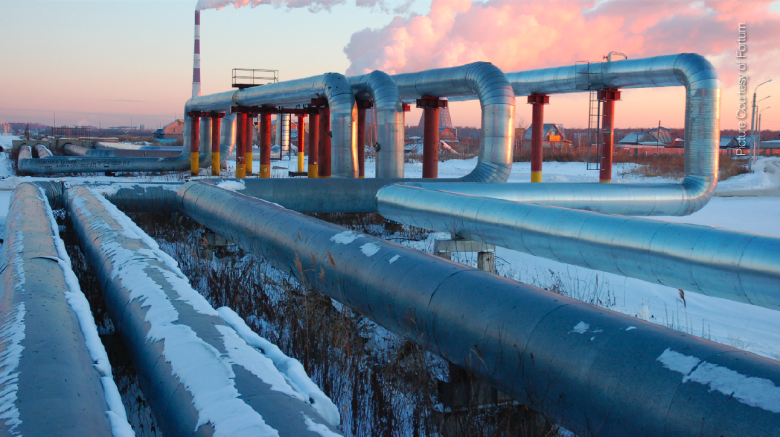
RUSSIA & NETHERLANDS GAS DOWN

Global trade of natural gas via pipelines fell the most on record last year as Russia halted exports to Ukraine and shipments declined from the Netherlands, the European Union's biggest producer, according to BP.
Exports of the fuel through pipelines slipped more than 6% last year, the biggest drop since the oil major started compiling the data in 1989, BP said in its annual Statistical Review. It's only the second time global gas trade retreated. Russian shipments declined by 12%, while those from the Netherlands tumbled 30%, according to the data.
Russia halted supplies to Ukraine for six months last year due to a price dispute between the two nations. Gas output in the Netherlands fell the most globally last year as the country's government decided to limit output from the Groningen field, Europe's biggest, after earthquakes caused by gas extraction damaged buildings in its most northern province.
"The weakness in pipeline gas trade was compounded by the dispute between Russia and Ukraine, which resulted in Russia's gas exports to Ukraine being turned off between June and December last year," said Spencer Dale, BP's chief economist. "Lower exports to EU and Ukraine caused Russia's gas production to fall by over 4%."
Pipeline exports also dropped as consumption in the EU fell 12% last year, the biggest decline on record, BP said. Reduced demand in the 28-member nation bloc dragged down global consumption, which grew by 0.4% compared with a 10-year average of 2.4%.
Mild Weather
The decline in global gas demand last year may not be sustainable because it was mainly driven by mild weather in Europe rather than structural factors, Dale said at a presentation of the report at BP's office in London.
Increased supplies of liquefied natural gas following the start of production in Papua New Guinea helped compensate for the weaker pipeline gas trade, BP said. Global LNG trade increased by 2.4%, taking a 33.4% share of total gas trade, according to the company.
While last year's demand growth was the lowest in almost 20 years, with the exception of the financial crisis, global production gained 1.6%, causing prices to drop globally, BP said. Northeast Asian spot liquefied natural gas (LNG) prices fell 45% in 2014, as US gas on Henry Hub slipped 32% and UK fuel on the National Balancing Point fell 28%, the most since 2009, according to exchanges and World Gas Intelligence.
US Exception
"This general weakening in gas prices also coincided with a further narrowing of the differential between regional gas prices, reflecting the increasing integration of global gas markets," Dale said. "The main exception to this story of global gas weakness was, of course, the US, where gas production increased by over 6%."
The US, the world's biggest gas producer, accounted for almost 80% of the increase in global gas output. Domestic supplies, with production growth mainly stemming from the Marcellus and Utica shale deposits, helped boost US consumption by almost 3% last year, BP said.
gasprocessingnews.com

